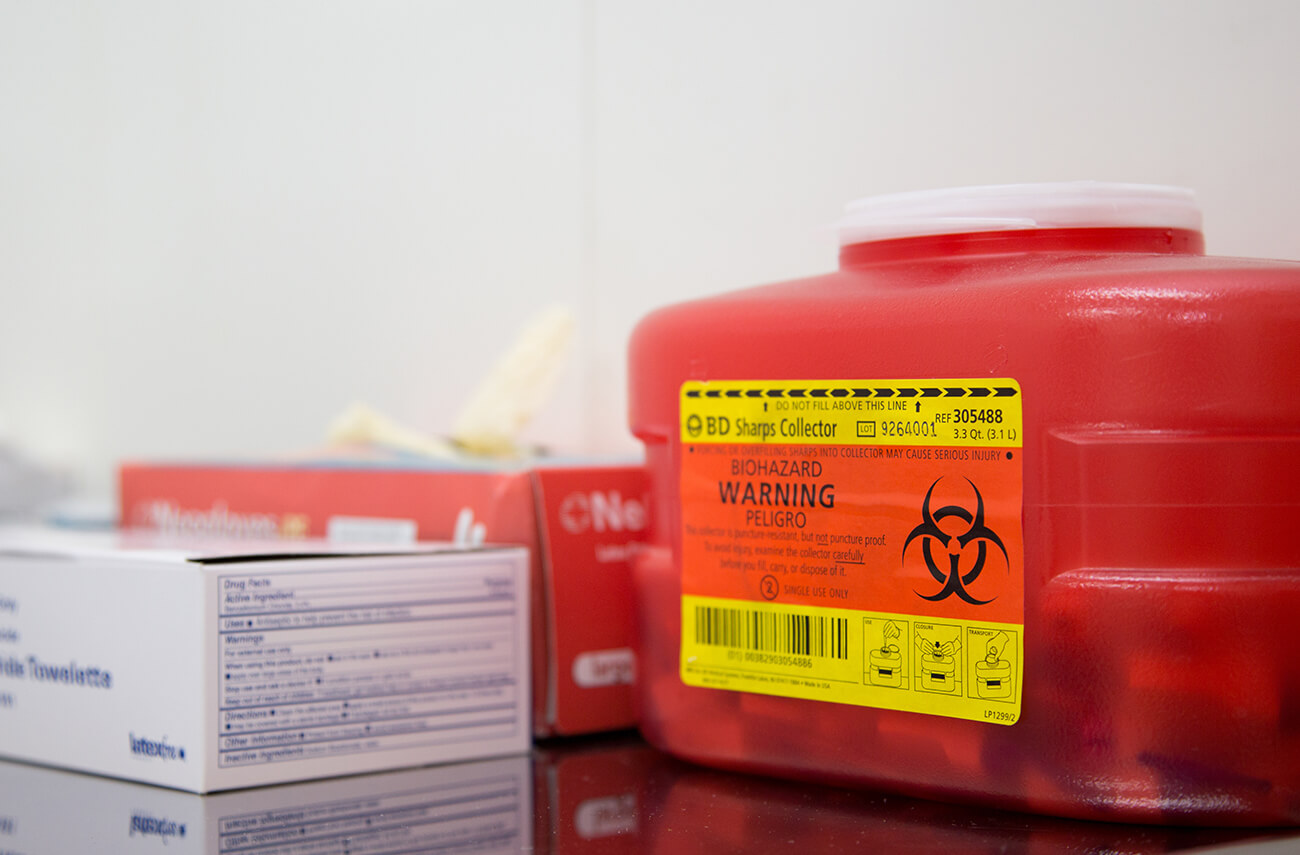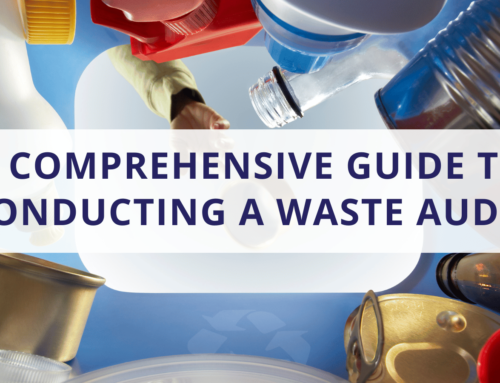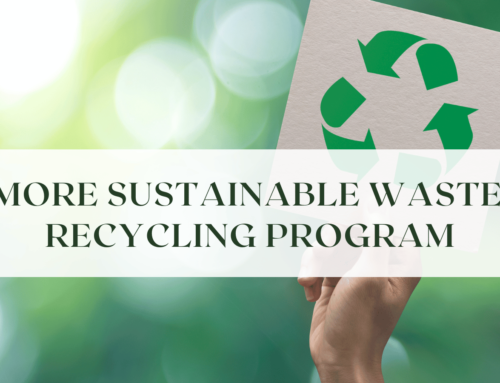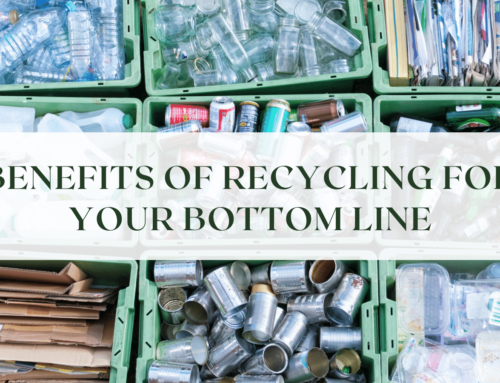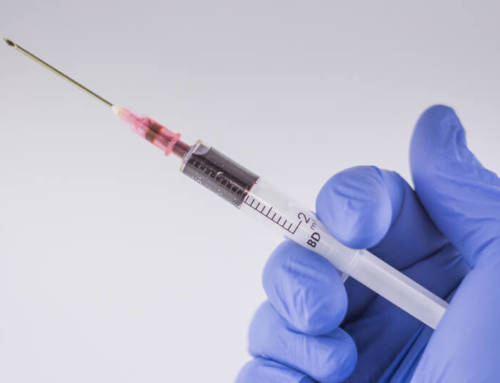Regulated medical waste management services help medical facilities take care of waste disposal needs while ensuring compliance. Facility management needs vary based on the diversity of medical facilities and compliance with state regulations is often complex.
To avoid penalties, facilities must follow proper disposal protocols including documentation.
Let’s review the various types of regulated medical waste, the reasons for medical waste regulations and the benefits when you outsource facility management services.
Types of Regulated Medical Waste
If you operate health care facilities such as physicians’ offices, blood banks, hospitals, dental practices, veterinary clinics, or medical research laboratories, you produce medical waste. Medical waste becomes regulated waste when it carries the potential to or is able to transmit infectious diseases to a person. Therefore, the following items are considered regulated medical waste:
- Liquid blood, semi-liquid blood or other potentially infectious materials (OPIM)
- Items contaminated with blood capable of releasing blood or OPIMs in a liquid or semi-liquid state if compressed
- Items that have dried blood or OPIMs that may release while handled
- Pathological and microbiological waste
- Sharps
- Isolation waste from quarantined patients
How is Medical Waste Regulated?
In general, state health and environmental departments regulate medical waste. As such, regulations vary from one state to another. Since the Medical Waste Tracking Act (MWTA) of 1988 expired in 1991, the EPA is not involved.
Other federal agencies, however, have medical waste regulations. Agencies include the U.S. Food and Drug Administration (FDA), the Centers for Disease Control (CDC) and the Occupational Safety and Health Administration (OSHA).
What do States Require?
States impose regulations regarding the containment of medical waste, as well as safe handling for employees, transport, and disposal. Some states require facilities to register as a generator of medical waste. Some impose storage limits on regulated medical waste prior to disposal.
Most require a regularly-updated medical waste management plan which includes waste storage bin locations or disposal company providers. In addition, requirements include the archival of manifests to track the transfer of medical waste for disposal.
Why are there So Many Rules for Medical Waste Management?
In the 1980s, medical waste began accumulating on several east coast beaches after washing ashore. This health and environmental hazard spurred Congress to pass the MWTA. Sharps disposal also became a larger issue in the 1980s due to concerns about transmission of HIV, AIDS, and hepatitis.
Incineration used to be the main disposal method for regulated medical waste. In 1997, the Environmental Protection Agency (EPA) implemented strict regulations regarding emissions for medical waste incinerators due to the concern regarding emissions and air quality. They continue to revise standards requiring facilities to stay abreast of regulation changes.
Are Sharps Regulated Medical Waste?
Yes! In fact, improper sharps disposal causes a great risk to the public and waste workers. Waste workers are exposed to potential needle stick injuries when containers break inside garbage trucks or are sent to recycling facilities by mistake. Inside medical facilities, janitors and housekeepers are at risk from needles poking through plastic trash bags.
Benefits of Regulated Medical Waste Management Services
- Simplify the process
- Provide manifests and documentation for compliance
- Different bins for different types of waste
- Schedule pickups based on your needs and schedule
- Competitive pricing
- Regulatory compliance
Many medical facilities use regulated medical waste management services to simplify the process while fulfilling their needs. Pickup services are designed to meet facilities’ waste removal demands while providing required documentation for manifest tracking and compliance with state and local regulations.
Regulated medical waste management services provide designated bins for different kinds of medical waste. This makes disposal easier for employees and simplifies disposal processing because different waste must be handled using specific methods.
These providers work on your schedule to ensure pickups as needed, when convenient for you. A good provider also helps educate your staff on regulated medical waste disposal best practices for their safety and for regulatory compliance.
To meet your needs and keep costs low, specialized waste management companies conduct waste audits. Don’t pay for services your facility doesn’t need.
Regulated medical waste management services help facilities cut the cost of disposal. Processing waste yourself increases labor costs, plus you may incur extra service fees when you take waste to a disposal facility.
It’s important to get the best deal on the services you need. Look for providers that charge based on your facility’s usage, for example, rather than by flat rate to cut regulated medical waste disposal costs. At SLM Facility Solutions Nationwide, we routinely seek competitive bids to advocate for you.
Specialized Waste Management Services from SLM Facility Solutions Nationwide
SLM provides dedicated regulated medical waste management services to dispose of the infectious waste and sharps produced by your facility. We work to manage your waste disposal needs and keep your facility in compliance.
We also provide other facility management services including recycling and document shredding. Contact us today to learn more about our facility solutions including regulated medical waste management services.

